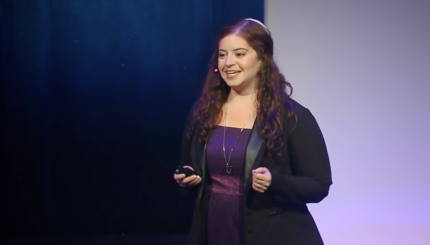Since I was a little kid growing up in Oklahoma City, Oklahoma, I’ve always known that I was somehow different in the Jewish community. I didn’t look like the other kids in Hebrew school. I was the only one to have Black family members at their bar mitzvah ceremony. And I eventually took on the expectation of providing the perspective and feelings of Black people to my Jewish friends in youth group and at camp. And for most of my life, I made the conscious decision to go with the flow. I figured that just letting these things happen and not really questioning their importance or impact on myself would allow me to somehow continue my life as usual.
However, throughout my time at college, I’ve had incredible professors, organizations, and friends that have challenged me to explore the roots of my past, including my relationships, and how they have shaped my life.
For the very first time in my entire life, as a half-Black, half-White member of the Jewish community, I have began owning my identities.
I no longer squeamishly describe my race – I proudly tell others of my diverse background and family makeup.
I no longer stay silent when racism pervades its way into the Jewish community – I am an advocate for protecting the dignity of all people, especially Jews of Color.
I no longer try to “play the part” of the Black person at Jewish summer camp or the lone Jewish student at public school – I am myself and act according to my personality and passions.
I no longer shy away from using my roles in the Jewish community to talk about race and privilege – I have realized how important it is to have these conversations.
I no longer provide a short answer when an acquaintance asks, “How did you decide to major in Jewish Studies, that’s so random?” – I understand which assumptions they are utilizing and provide them with a fully developed response that will make them think and grow.
Overall, I am a somewhat reserved and polite person, usually striving to avoid conflict and serve the “people pleaser” role. While, my natural inclination is to just allow events and ideas to pass without raising objection, my growth over the past few years has me asking a lot of questions and striving to orchestrate tough conversations in the Jewish community:
Are Jews truly committed toward helping people of color succeed?
How are congregations ensuring that they are inclusive and welcoming of Jews of all backgrounds?
How do White Jews truly understand and own White privilege in America?
While I think I have some of the answers to these questions, I am by no means the expert of this important and holy conversation. Additionally, I’m not completely sure there are “right” answers to these complex challenges. Unlike most articles, this one doesn’t have a pretty bow to tie up all of these thoughts. While I’m anxious to continuing thinking about and discussing these challenges, I’m excited for what the future could hold for the Jewish community if we just take a leap of faith toward meaningful conversations, strong relationships, and inspired action.



